|
Help About Related Share Your Story General Mall
Food Court Retail Entertainment Management Souvenirs Related Links
|
MartinLutherKing
Martin Luther King, Jr.From the National Archives: The name of Martin Luther King, Jr., is intertwined with the history of the civil rights movement of the 1950s and 1960s in the United States. The Montgomery bus boycott, the freedom rides, the Birmingham campaign, the March on Washington, the Selma march, the Chicago campaign, and the Memphis boycott are some of the more noteworthy battlefields where King and his followers--numerous in numbers, humble and great in name-- fought for the equal rights and equal justice that the United States Constitution ensures for all its citizens. King, building on the tradition of civil disobedience and passive resistance earlier expressed by Thoreau, Tolstoy, and Gandhi, waged a war of nonviolent direct action against opposing forces of racism and prejudice that were embodied in the persons of local police, mayors, governors, angry citizens, and night riders of the Ku Klux Klan. The great legal milestones achieved by this movement were the Civil Rights Act of 1964 and the Voting Rights Act of 1965. In the later 1960s, the targets of King's activism were less often the legal and political obstacles to the exercise of civil rights by blacks, and more often the underlying poverty, unemployment, lack of education, and blocked avenues of economic opportunity confronting black Americans. Despite increasing militancy in the movement for black power, King steadfastly adhered to the principles of nonviolence that had been the foundation of his career. Those principles were put to a severe test in his support of a strike by sanitation workers in Memphis, Tennessee. This was King's final campaign before his death. During a heavy rainstorm in Memphis on February 1, 1968, two black sanitation workers had been crushed to death when the compactor mechanism of the trash truck was accidentally triggered. On the same day in a separate incident also related to the inclement weather, 22 black sewer workers had been sent home without pay while their white supervisors were retained for the day with pay. About two weeks later, on February 12, more than 1,100 of a possible 1,300 black sanitation workers began a strike for job safety, better wages and benefits, and union recognition. Mayor Henry Loeb, unsympathetic to most of the workers' demands, was especially opposed to the union. Black and white civic groups in Memphis tried to resolve the conflict, but the mayor held fast to his position. As the strike lengthened, support for the strikers within the black community of Memphis grew. Organizations such as COME (Community on the Move for Equality) established food and clothing banks in churches, took up collections for strikers to meet rent and mortgages, and recruited marchers for frequent demonstrations. King's participation in forming a city-wide boycott to support the striking workers was invited by the Reverend James Lawson, pastor of the Centenary Methodist Church in Memphis and an adviser to the strikers. Lawson was a seasoned veteran of the civil rights movement and an experienced trainer of activists in the philosophy and methods of nonviolent resistance. At that time King was involved in planning with other civil rights workers the Poor People's Campaign for economic opportunity and equality. He was also zigzagging by airplane through the eastern United States meeting speaking engagements and attending important social events as head of the Southern Christian Leadership Conference (SCLC). Nevertheless, King agreed to lend his support to the sanitation workers, spoke at a rally in Memphis March 18, and promised to lead the large march and work stoppage planned for later in the month. Unfortunately the demonstration on March 28 turned sour when a group of rowdy students at the tail end of the long parade of demonstrators used the signs they carried to break windows of businesses. Looting ensued. The march was halted, the demonstrators dispersed, and King was safely escorted from the scene. About 60 people had been injured, and one young man, a looter, was killed. This episode prompted the city of Memphis to bring a formal complaint in the District Court against King, Hosea Williams, James Bevel, James Orange, Ralph Abernathy, and Bernard Lee, King's associates in the Southern Christian Leadership Conference (SCLC). The outbreak of violence deeply distressed King. In the next few days he and fellow SCLC leaders negotiated with the disagreeing factions in Memphis. When assured of their unity and commitment to nonviolence, King came back for another march, at first scheduled for April 5. In the meantime, U.S. District Court Judge Bailey Brown granted the city of Memphis a temporary restraining order against King and his associates. But the SCLC's planning and training for a peaceful demonstration had intensified. Lawson and Andrew Young, representing the SCLC, met with the judge April 4 and worked out a broad agreement for the march to proceed April 8. The details of the agreement would be put into place the next day, April 5. This was the message that Young conveyed to King as they were getting ready to go out to dinner. Moments later, on that evening of April 4, 1968, as King stepped out of his motel room to join his colleagues for dinner, he was assassinated. 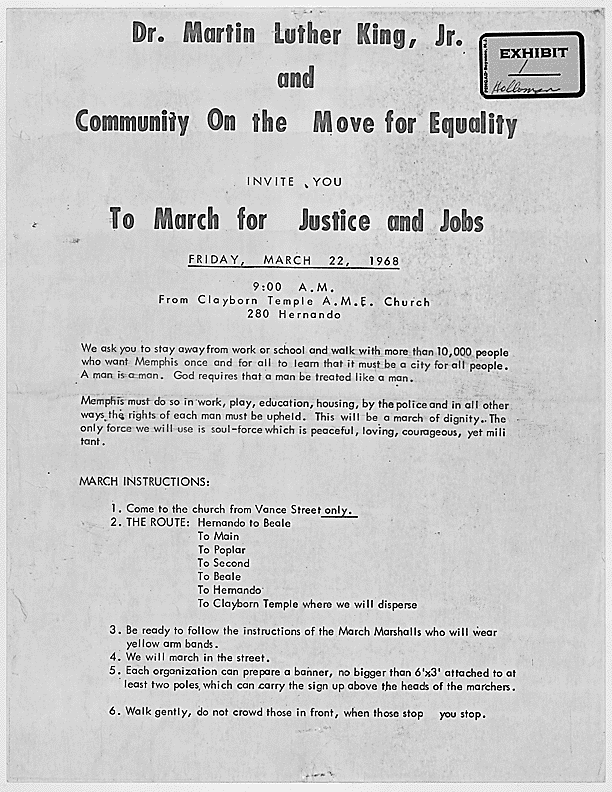 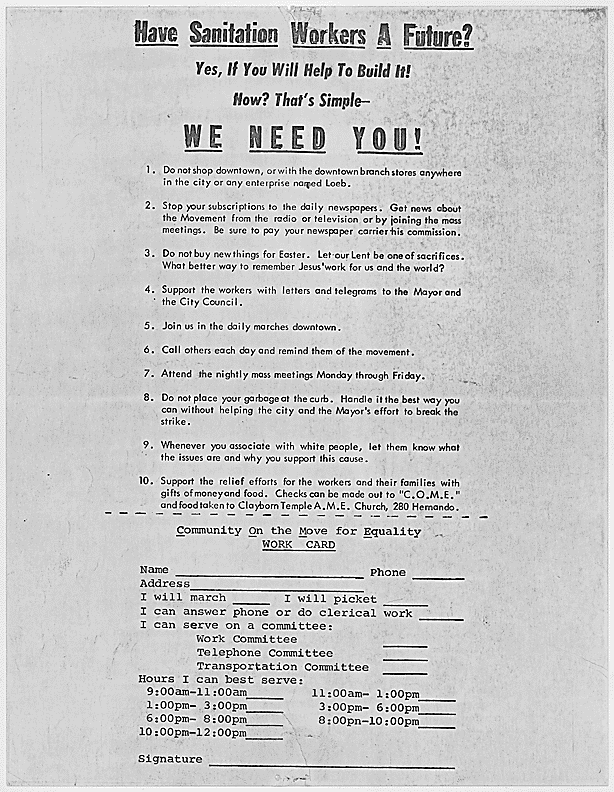 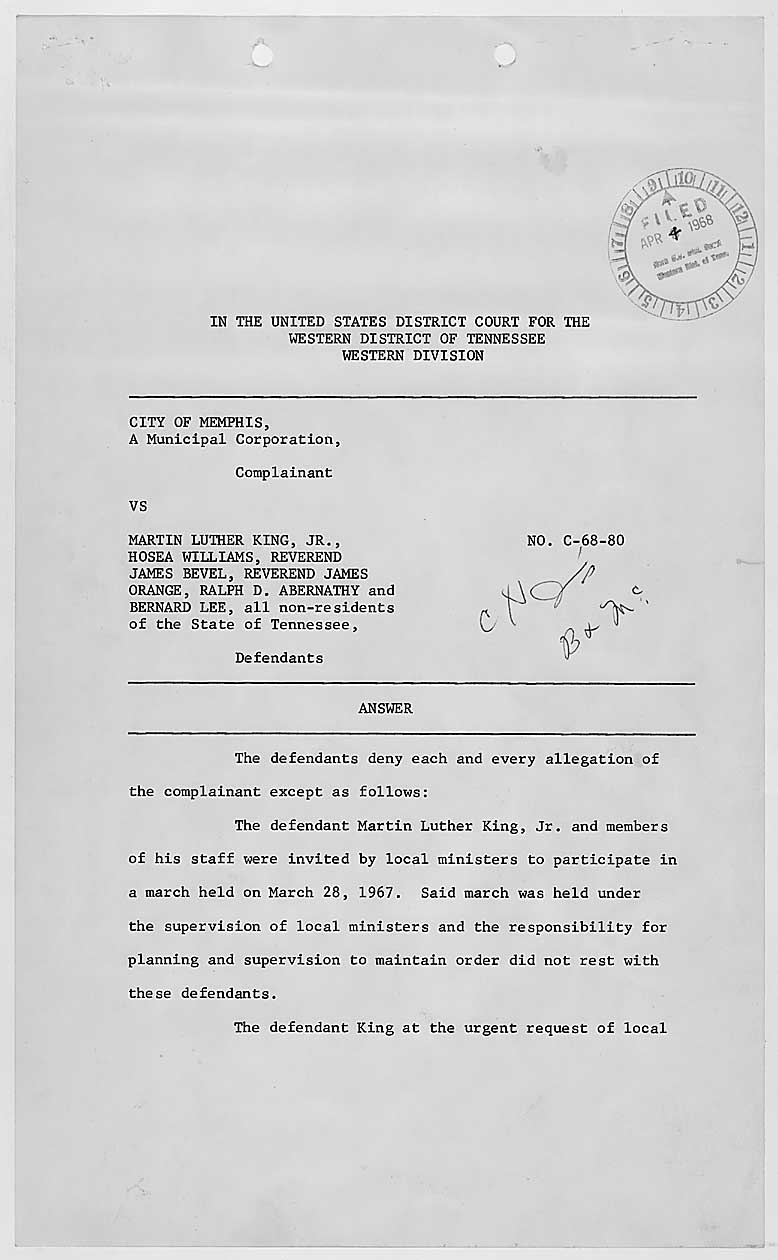 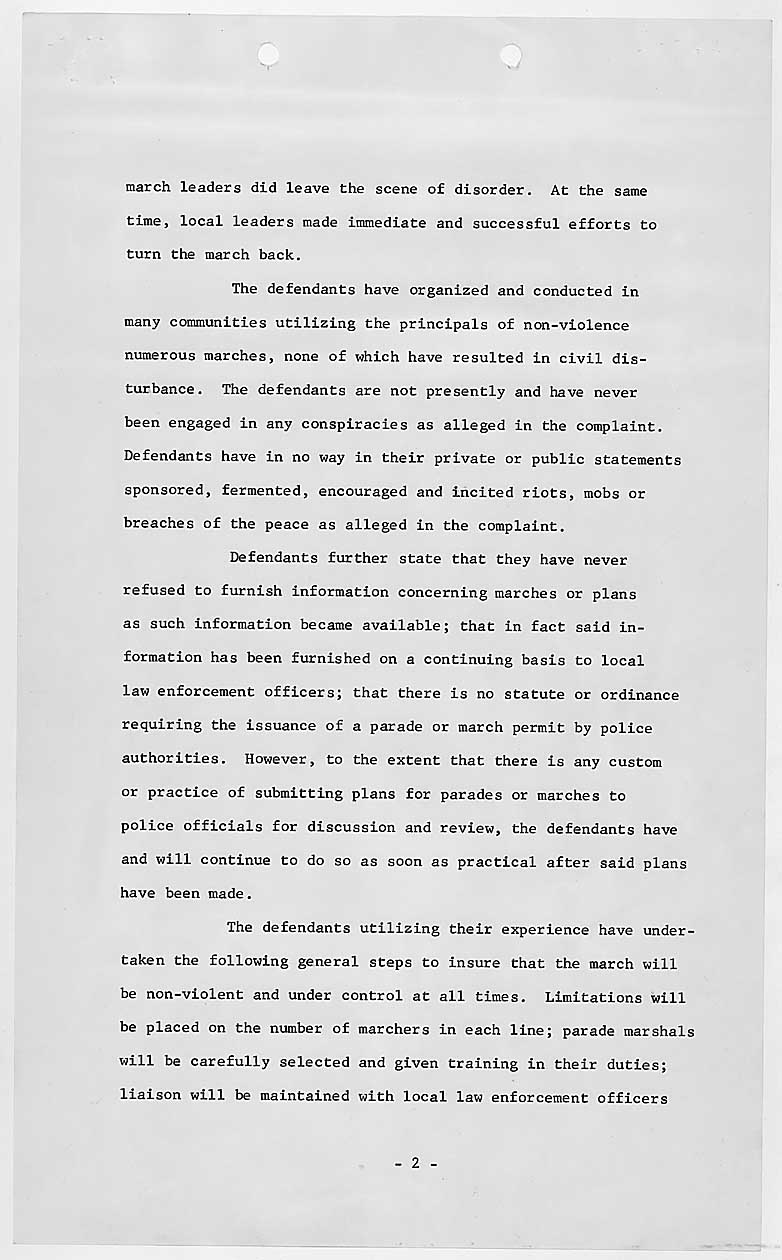 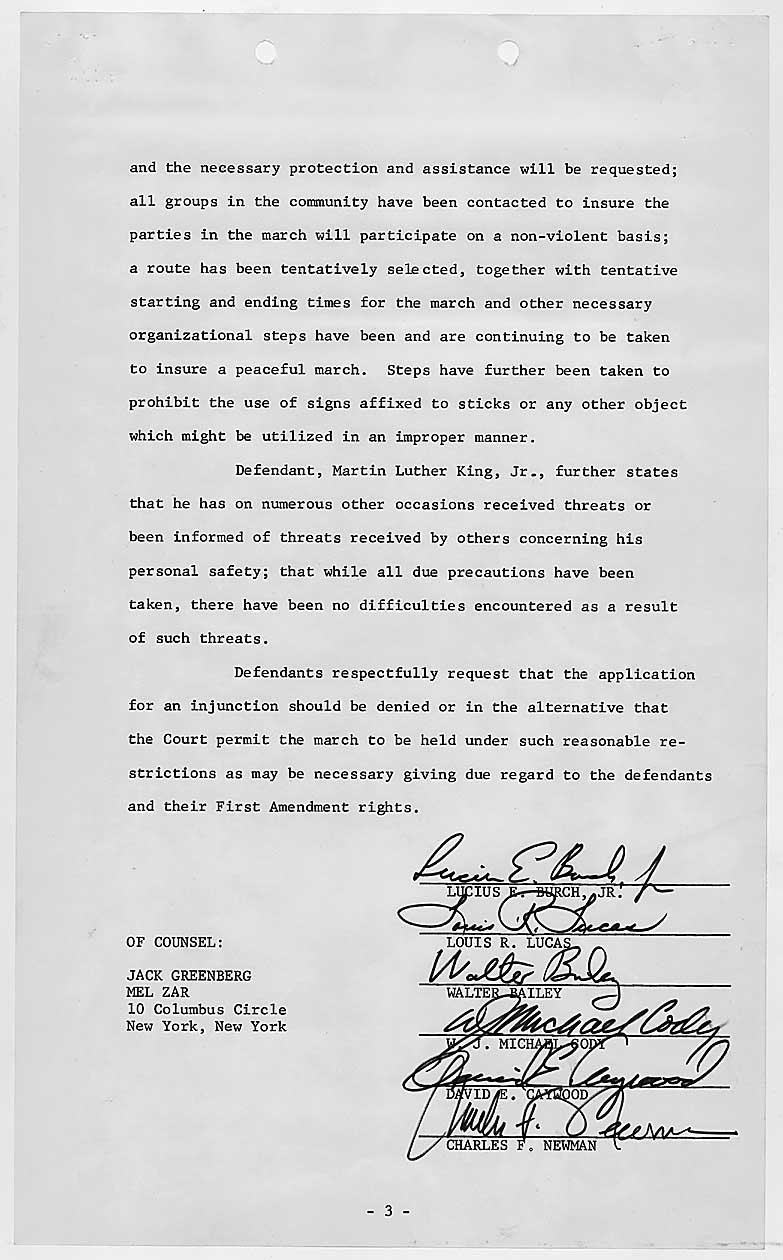 References |
